How much do teenagers of El Salvador know about Human Rights?
María Esperanza Rivas, ambassador of the program SERES, tells us her experience, that began in a classroom at the University of El Salvador.
Central America is characterized as a region with constant violations of Human Rights, seriously violating their citizens' security, the constitutional and social state of law, and Economic, Social, Cultural and Environmental rights. Human Rights allow us to freely think and express our ideas, thoughts and opinions; walk and move as we please; gather, organize and associate with others for any purpose, any legal and peaceful activity that helps us grow as human beings and as a society. No one can deny, then, that all people have human rights, and that these rights, as a whole, allow us to live in dignity, freedom and equality with others. When I emphasize the above, I recall a moment that has guided me to find my passion, sitting in front of the cafeteria at the National University of El Salvador, there were a small group of students of the Psychology course, and we were planning which research would we conduct to save our Introduction to Psychology assignment; after analyzing and discussing various topics we decided to research on institutes, public and private schools, how much students knew about Human Rights, and how were these implemented in their schools. After 3 months of research we realized that students have a deficit in knowledge of the subject. The research ended, but concern invaded us, so we talked with Mr. Bartolomé, the teacher responsible for giving us the assignment of Introduction to Psychology. With him we discussed the concern of the group and he had our backs until we were allowed to enter the schools already investigated, to work with students between the ages of 13 to 20.
This was no longer a job to save an academic note; it had become an obligation for us. From March up to today, we have assisted four schools, where this experience has been one of the biggest challenges I've had, the kind that enriches personal growth. To continue to assist and promote their RIGHTS is an obligation to all of us, a personal commitment and a responsibility of the Central American states to implement policies and measures that ensure the full protection of the rights of the children, teenagers and youth, to reduce threats and vulnerabilities that place them at high risk. They should promote integrative social processes that allow their emotional, physical and psychological development, according to their needs. "Human Rights are a guide to defend what belongs to us and our duty is to enforce them" words of Mercy Moz, a girl from Santa Marta belonging to the "free schools" that young students from the National University of the Santa Marta community carry out on weekends, because we have understood that if we want to transform the space where we live we should walk along childhood. It is necessary to work on building a country fully protective of the rights of all children and teenagers. Among them: the establishment of effective coordination mechanisms and removing economic barriers that occur primarily to population living in poverty and exclusion; changing social norms and beliefs that stigmatize and further the violation of children’s rights; and preventing violence in all its forms. In order to meet these goals, a significant and sustained increase on the budgets aimed at children and teenagers in the coming decades is needed, focusing on the quality and quantity of basic social services from a perspective of rights compliance. This will also require legislative shielding, and a close support from civil society, including parents themselves. Human Rights and fundamental freedoms have been conquered, recognized and developed throughout the history of humanity, to defend and promote them is your job and that of all who inhabit this space called Earth, that in every place we make a difference, let us dream and transform with positive changes, it is your right to dream and fulfill your duty.
"I am not a liberator. Liberators do not exist. The people are the ones who release themselves”. Che Guevara


